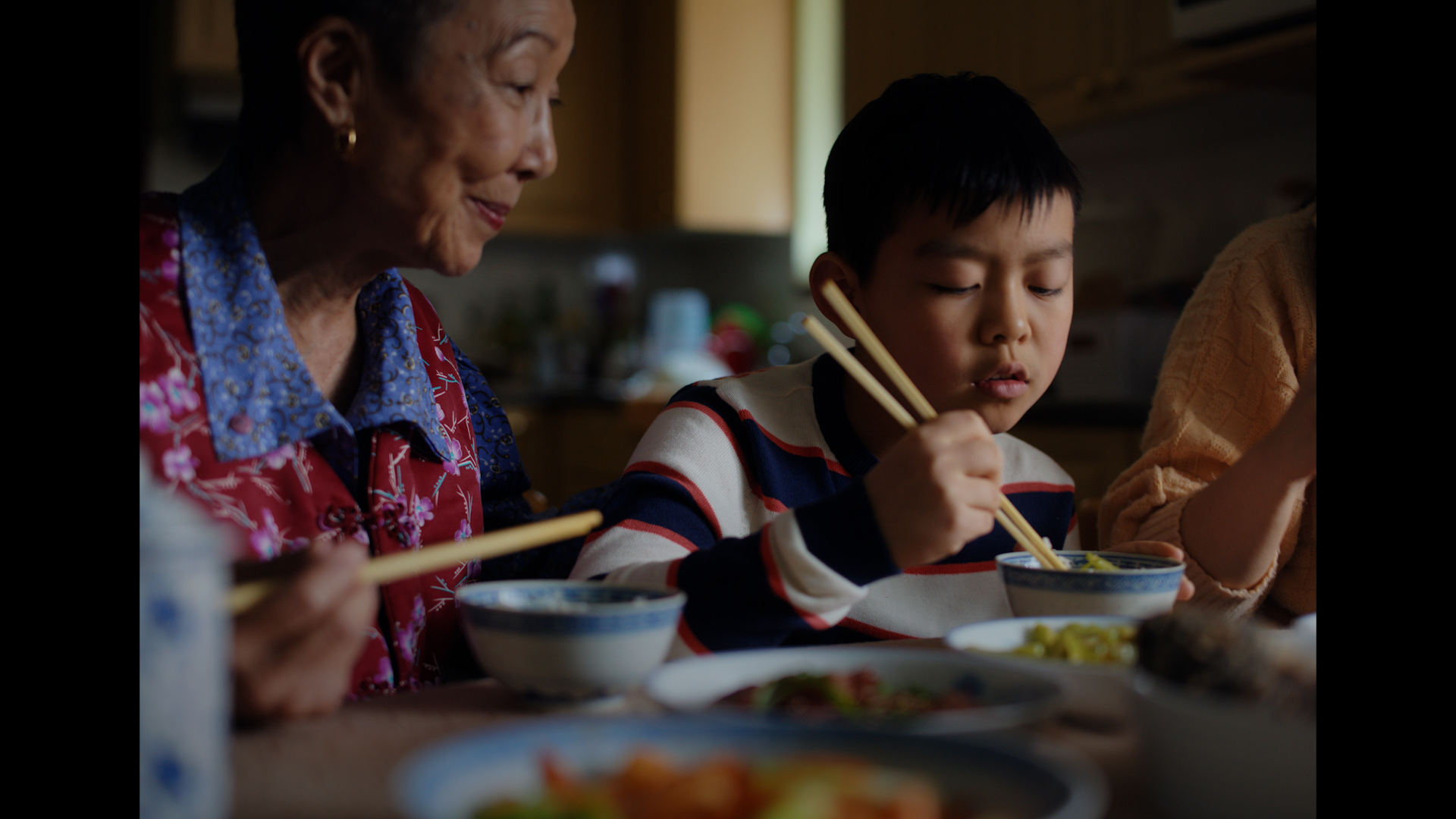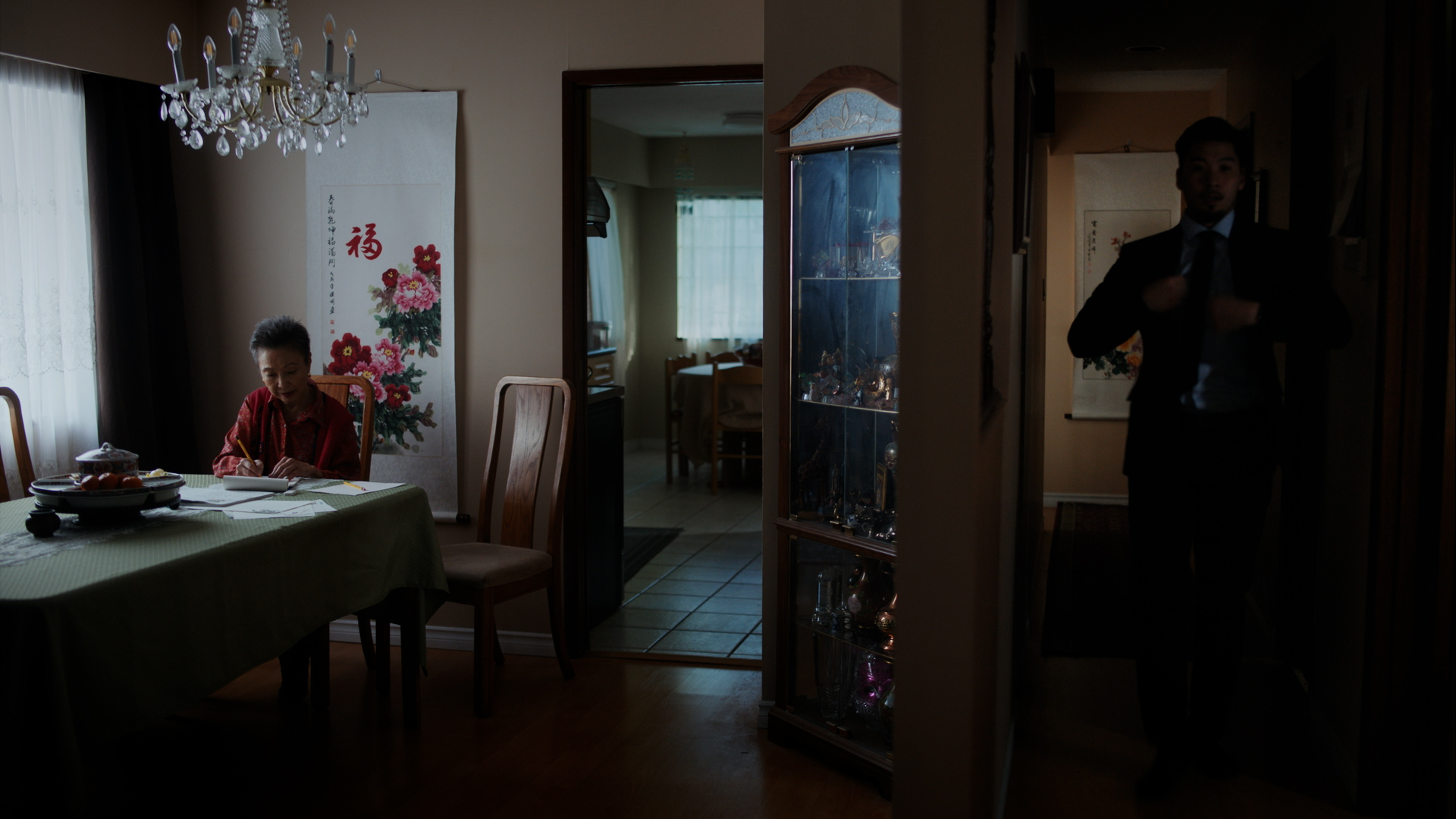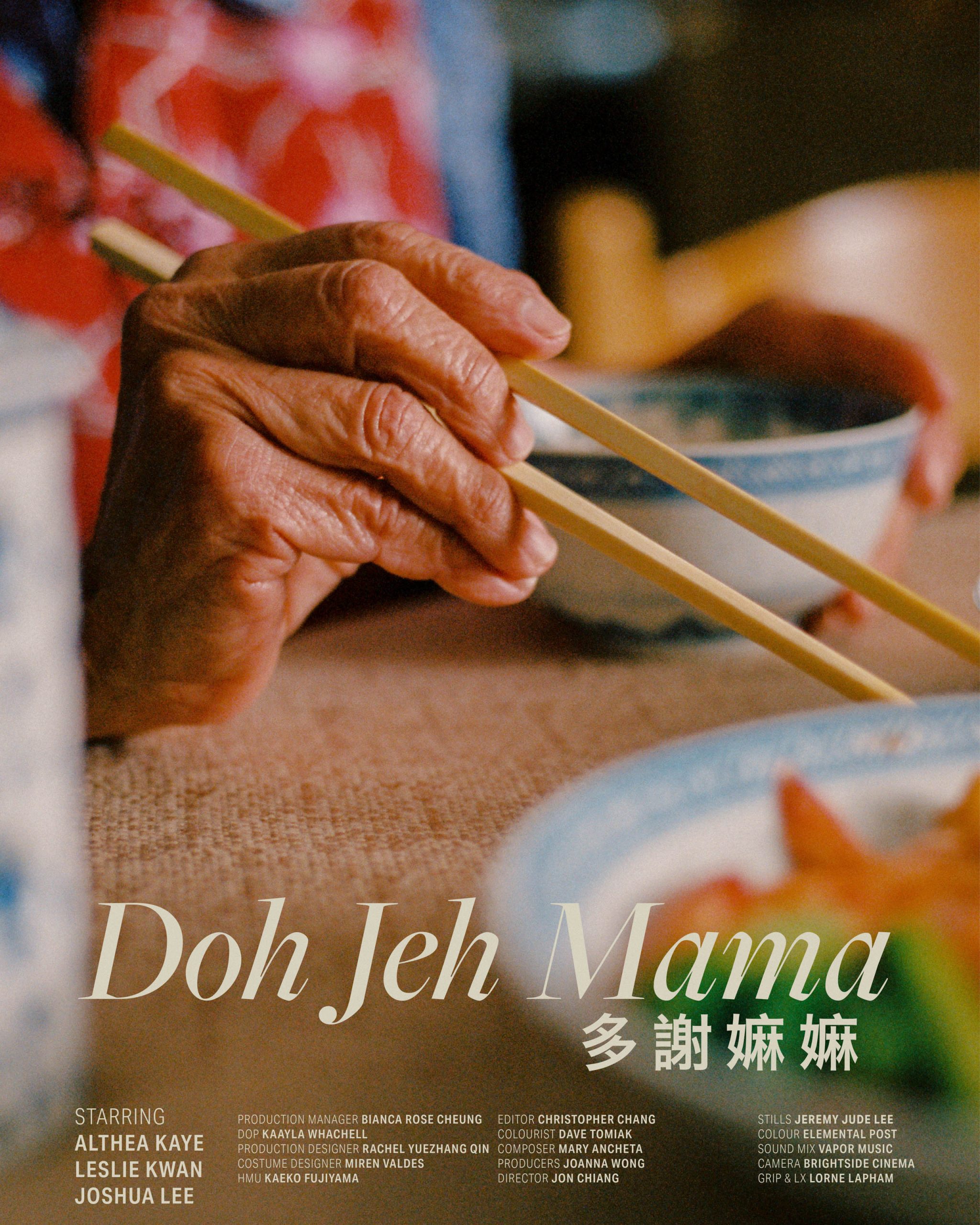“Thank You Grandma” is an intimate portrayal of a lifelong relationship between a grandson and his grandmother. Drawing from my own experiences with my grandmothers, the film offers a soul-stirring glimpse into the experiences of first and second-generation immigrants born in North America.
This idea came to fruition with the Asian filmmaking community creating together on the unceded territory of the Musqueam, Squamish, and Tsleil-Waututh nations (Vancouver, BC). Newcomer Joshua Lee delivers a heartwarming performance as the young grandson alongside touching performances by Mama (Althea Kaye) and Leslie Kwan as the adult grandson. Award-winning Cinematographer Kaayla Whachell, who has Okinawan in addition to Red River Metis and Czech heritage, brings a human and organic touch to the aesthetic of the film. A true passion project, myself and Joanna Wong, our producer, were moved by the generosity brought by the cast, crew and collaborators who came together to create something important during Asian Heritage and AAPI Month.
The heaviness of the past few years has undoubtedly been felt by the Asian diaspora across North America. Despite this, I felt it was important to continue to share and celebrate our unique experiences. I wish for second-generation immigrants to see a part of their own life in this film.

short film called “Thank you Grandma”
Inspired by my own experiences of life and loss with my grandparents, I began writing this script. Having never known my grandfathers, my grandmothers felt like the thread connecting me to my Cantonese Heritage.
In 2019, I took a year to travel to South America and spend time in Lima Peru, where both my parents were born and grandparents had immigrated to. For the first time, I spent two months living in the same city as my PohPoh. Growing up, my PohPoh lived between Lima and San Francisco, only seeing her once or twice a year. For the first time, I got to live in the same city as her and have a glimpse into her life.
My PohPoh brought us into her community, taking us to Chinese Association parties and touring us around Chinatown. I saw the apartment my mom grew up in and the Chifa (Chinese Restaurant) my family owned. I asked questions about my grandfather. About what she thought about being Chinese and Peruvian. If she liked living in the United States. A small part of me knew that this might be the last time I’d get to spend this much time with my Poh Poh.
Leading up to my travels, I was burnt out. I was putting so much energy into trying to make it as a freelance director. At one point, I was juggling a demanding full-time job and freelancing at night and weekends, leaving me little time for life outside of work. But after a few years, I was able to make it as a freelance Director.
The love and energy my grandparents and parents put into me to have a “successful” life was coming to fruition. But I felt like there was a cost. Especially with my grandmother, who was aging.
And in the midst of the pandemic, my PohPoh was diagnosed with cancer. My time with her in Peru would be the last time we had together while she was healthy.

Short film called “Thank you Grandma”
Sitting with her at the end of her life, I felt an immense sense of gratitude for the time we had in Lima together. I felt like I got a chance to really know her and the place she called home. I thought of the privileged life I have now – none of which would be possible without her and the struggles of my grandparents. Ultimately, that’s what this film attempts to capture.
Asian Heritage Month is a chance to celebrate the great achievements and progress of Asians in North America. We are standing on the shoulders of giants, with great activists, artists, writers, filmmakers, community workers and leaders working toward a safer and more tolerant society. But it’s also a time to remember and celebrate the everyday people in our lives.
This film is a love letter to our ancestors, grandparents and parents – for bringing us to a new place we call home. It’s for all the opportunities we have today. For making dangerous journeys, surviving conflict and gritting through racism in the new places they came to. It’s an opportunity to reflect and take a pause at how far we’ve come and thank those who’ve come before us.

A love letter to our grandmas for Asian Heritage Month
“Thank you Grandma” is a short film by Chinese-Peruvian Director Jon Chiang. Made in honour of Asian Heritage Month
Jon Chiang has always been drawn to universal stories woven by underrepresented people. Raised by Chinese parents born in Lima, Peru, he grew up in his family’s grocery store in East Vancouver. Walking the blurred lines of his Chinese and Latino heritage, he developed a sensitivity that he uses to reveal the truths about our shared experiences. A principal at Chifa Studios, he is producing transformative stories through documentaries. When not working, you can find him on the bike, folding empanadas or chasing his toddler around.